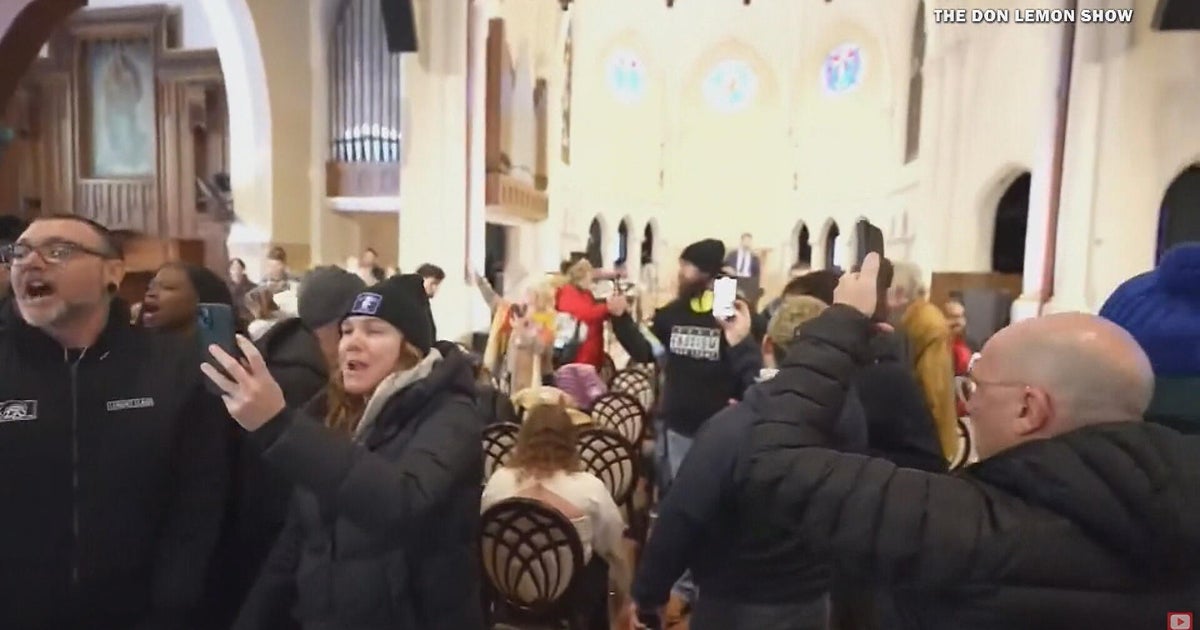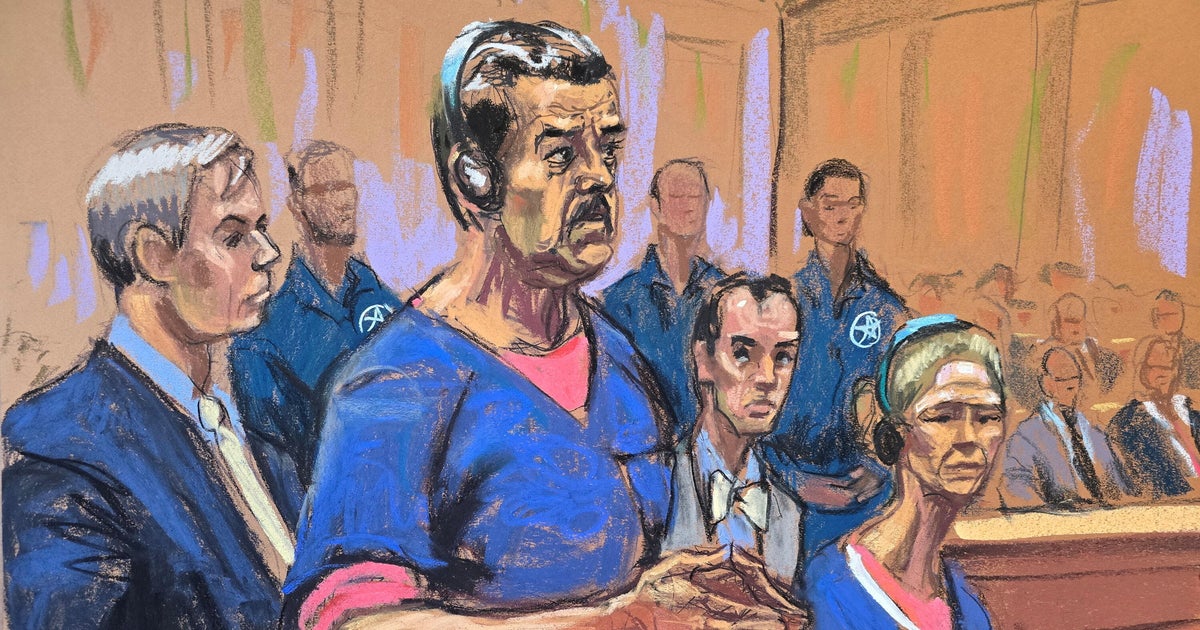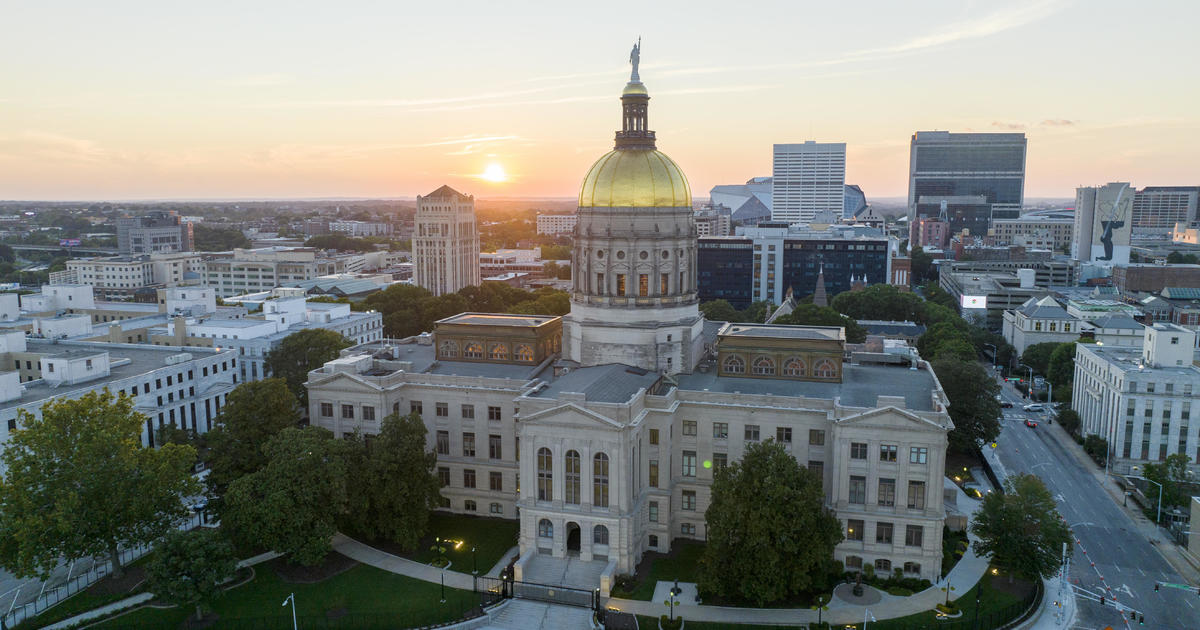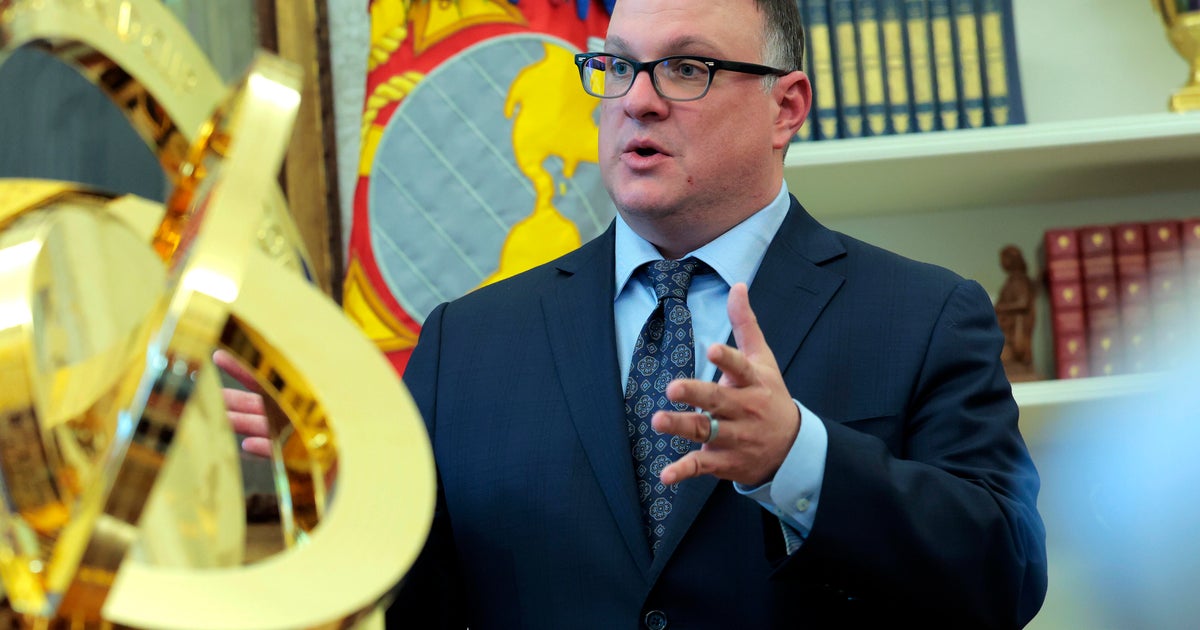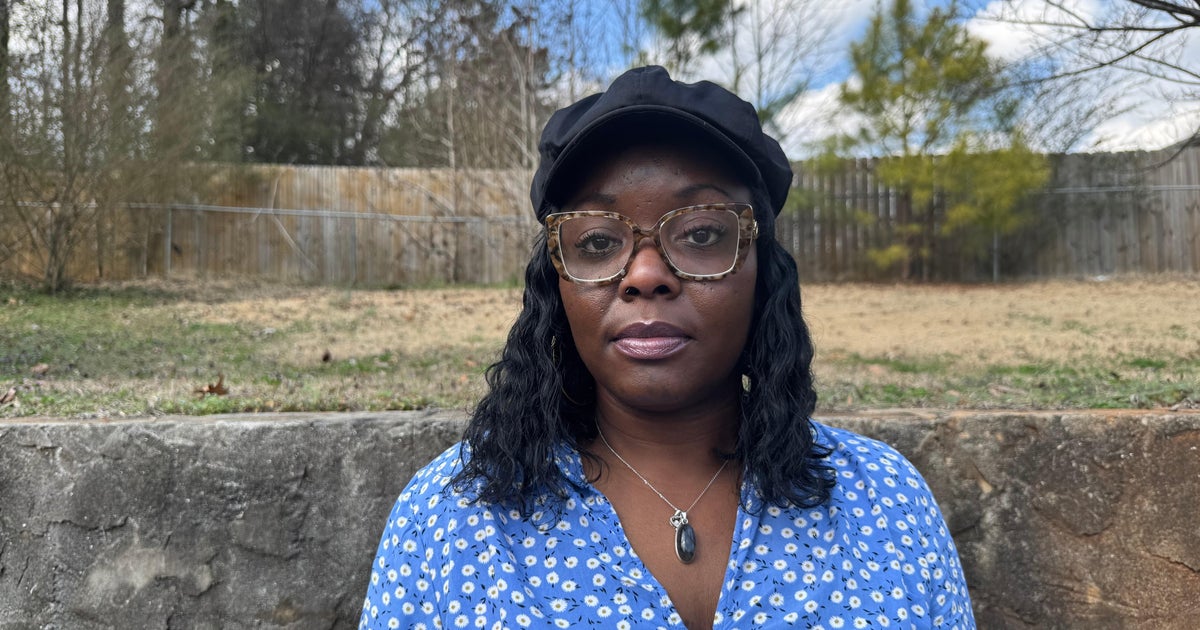President Biden pardons son Hunter Biden
Washington — President Biden announced late Sunday that he issued a pardon for his son Hunter Biden, in a major reversal in the final weeks of his presidency.
Mr. Biden repeatedly pledged not to pardon his son, who was convicted in June of three separate felony charges related to his purchase of a revolver in 2018 when he was battling an addiction to illegal drugs, which he lied about on paperwork to obtain the gun. He also pleaded guilty to nine tax evasion charges in a separate case in September.
"Today, I signed a pardon for my son Hunter. From the day I took office, I said I would not interfere with the Justice Department's decision-making, and I kept my word even as I have watched my son being selectively, and unfairly, prosecuted," Mr. Biden said in a statement Sunday night.
The president argued that "Hunter was treated differently" than others under similar circumstances, claiming that the charges were brought after "several of my political opponents in Congress instigated them to attack me and oppose my election."
"No reasonable person who looks at the facts of Hunter's cases can reach any other conclusion than Hunter was singled out only because he is my son — and that is wrong," Mr. Biden said.
The "Full and Unconditional Pardon" applies to any crimes Hunter Biden may have committed from Jan. 1, 2014, through Dec. 1, 2024.
Mr. Biden did not address the pardon with reporters before boarding Air Force One for his trip to Angola.
Hunter Biden charges and allegations
Hunter Biden was investigated and prosecuted by special counsel David Weiss, the Trump-appointed U.S. attorney in Delaware who was kept on by Mr. Biden's administration in 2021, when other Trump-era prosecutors were asked to resign, in order to continue the probes into Hunter's conduct. Attorney General Merrick Garland later elevated Weiss to special counsel status after whistleblowers and congressional Republicans alleged irregularities in the probe.
Weiss' office declined to comment on the pardon.
Joseph Ziegler and Gary Shapley, two IRS whistleblowers who came forward to raise concerns about what they said were the Justice Department's efforts to shield Hunter Biden, said in a statement that it was "a sad day for law abiding taxpayers to witness this special privilege for the powerful."
Before dropping out of the race for president, Mr. Biden had committed not to pardon his son, saying in an interview with ABC News in June that he had ruled it out. After opting to leave the race the next month, the White House maintained that Mr. Biden had no plans to pardon his son, though the possible political consequences of the decision had decreased. The White House said as recently as last month that the president still had no plans to issue a pardon.
"I have admitted and taken responsibility for my mistakes during the darkest days of my addiction — mistakes that have been exploited to publicly humiliate and shame me and my family for political sport. Despite all of this, I have maintained my sobriety for more than five years because of my deep faith and the unwavering love and support of my family and friends," Hunter Biden said in a statement Sunday night.
"I will never take the clemency I have been given today for granted and will devote the life I have rebuilt to helping those who are still sick and suffering," the president's son said.
Hunter Biden was set to be sentenced for the gun convictions on Dec. 12 and on Dec. 16 for the tax evasion charges.
Following the White House announcement of the pardon, Hunter Biden's legal team informed the federal judges overseeing his cases in Delaware and California about the pardon so the cases can be formally dismissed and the sentencing hearings set for later this month be canceled.
Hunter Biden was indicted on three felony gun charges in September after a proposed plea deal with federal prosecutors fell apart. The deal would have had him plead guilty to two misdemeanor tax charges and enter a diversion program instead of pleading guilty to a felony gun possession count.
During the court hearing in which the plea deal was set to be finalized, the judge overseeing the case raised concerns over the terms while Hunter Biden's legal team pushed back against prosecutors over whether the agreement was to protect the president's son from any future criminal charges.
Hunter Biden was accused of lying on paperwork and illegally purchasing and possessing a gun while he was addicted to crack cocaine. Federal law prohibits users of illegal drugs from owning firearms.
Prosecutors said the president's son lied about his drug use on a Bureau of Alcohol, Tobacco, Firearms and Explosives form when he bought a revolver and several other items from a Wilmington, Delaware, gun store on Oct. 12, 2018.
In the separate case in California, a federal grand jury last December charged Hunter Biden with three felony tax offenses and six misdemeanor offenses. The president's son was accused of failing to pay at least $1.4 million in federal taxes while living an "extravagant lifestyle."
According to the indictment, Hunter Biden made some $7 million in income from his foreign business dealings from 2016 through 2019. He was accused of spending nearly $5 million during that same time period on "everything but his taxes," including on drugs, escorts, luxury hotels, cars and clothing. Hunter Biden was accused of falsely listing those purchases as business expenses.
After unsuccessfully attempting to enter an "Alford" plea, wherein a defendant accepts a guilty verdict while maintaining their innocence, Hunter Biden pleaded guilty to the tax evasion charges on Sept. 5.
"Without aggravating factors like use in a crime, multiple purchases, or buying a weapon as a straw purchaser, people are almost never brought to trial on felony charges solely for how they filled out a gun form," Mr. Biden said Sunday night. "Those who were late paying their taxes because of serious addictions, but paid them back subsequently with interest and penalties, are typically given non-criminal resolutions. It is clear that Hunter was treated differently."
Special counsel response
Weiss argued in a court filing on Monday that Hunter Biden's cases should not be dismissed, but rather closed by the judge overseeing them. The Justice Department said Monday they have not yet seen the order of clemency signed by Mr. Biden for his son.
Weiss argued the cases against Hunter Biden were not defective and as a result, should not be dismissed. He says the judges should follow precedent form other cases in which defendants received pardons and simply close the case and docket the notice of clemency on the public docket.
"If media reports are accurate, the Government does not challenge that the defendant has been the recipient of an act of mercy," Weiss said in the filing. "But that does not mean the grand jury's decision to charge him, based on a finding of probable cause, should be wiped away as if it never occurred. It also does not mean that his charges should be wiped away because the defendant falsely claimed that the charges were the result of some improper motive. No court has agreed with the defendant on these baseless claims, and his request to dismiss the indictment finds no support in the law or the practice of this district."
Without specifically calling out Mr. Biden by name, Weiss also pushed back on criticism of the probe, writing, "there was none and never has been any evidence of vindictive or selective prosecution in this case."
White House response
White House press secretary Karine Jean-Pierre dodged questions about the president's reversal on Monday, reiterating portions of the president's statement while speaking to reporters aboard Air Force One. She outlined that Mr. Biden made the decision over the weekend, saying that he "agonized" over it.
While insisting Mr. Biden believes in the Justice Department, Jean-Pierre said that "politics infected the process," arguing that "both things could be true." She said the president is not seeking the resignation of the attorney general, and said Mr. Biden does not agree with President-elect Donald Trump that the DOJ has been weaponized for political purposes or needs reform.
Jean-Pierre suggested that the decision came in part because the president didn't think his political opponents would let up.
"One of the reasons the president did the pardon is because it didn't seem like his political opponents would let go of it," Jean-Pierre said. "It didn't seem like they would move on."
Biden family reaction
First lady Jill Biden told reporters on Monday "of course I support the pardon of my son."
The first lady and daughter Ashley were often present during Hunter Biden's trial to show their support for him. Hunter Biden, his wife Melissa and son Beau Jr. all spent Thanksgiving weekend on Nantucket with Mr. Biden, Jill Biden and Ashley.
Reaction to the pardon
On social media, Trump called the Biden pardon "an abuse and miscarriage of Justice!"
Other Republicans on Sunday and Monday decried the pardon. House Speaker Mike Johnson posted X that "trust in our justice system has been almost irreparably damaged by the Bidens and their use and abuse of it."
Sen. Chuck Grassley wrote that is he is "shocked" about the pardon because Mr. Biden "said many many times he wouldn't & I believed him[.] Shame on me."
Colorado's Democratic Gov. Jared Polis, meanwhile, wrote on Sunday that as a father, he understands Mr. Biden's desire to pardon his son, but said he was "disappointed that he put his family ahead of the country. This is a bad precedent that could be abused by later Presidents and will sadly tarnish his reputation."
But former Obama administration Attorney General Eric Holder said on Sunday night "pardon warranted," posting on social media that had Hunter Biden's "name been Joe Smith the resolution would have been - fundamentally and more fairly - a declination."
Holder also mentioned Trump's announcement over the weekend that he wanted Kash Patel to lead the FBI, saying "ask yourself a vastly more important question. Do you really think Kash Patel is qualified to lead the world's preeminent law enforcement investigative organization? Obvious answer: hell no."
Presidential pardons
Hunter Biden is the 26th person to receive a pardon during Mr. Biden's presidency. Most of the others received pardons for drug offenses. Trump granted 29 pardons at this point in his first term, but issued a total of 143 pardons by the time he left office in 2020.
This is not the first time a president has pardoned a family member. President Bill Clinton pardoned his half-brother, Roger Clinton, before leaving office. Trump pardoned his son-in-law's father, Charles Kushner, during his first term. Trump announced that he intends to nominate Kushner as U.S. ambassador to France on Saturday.
The two federal cases against Hunter Biden came amid a backdrop of Republican-led congressional inquiries into his business dealings and whether they involved Mr. Biden. The president has maintained he had nothing to do with his son's businesses and the investigative committees produced no evidence showing the president engaged in wrongdoing.
